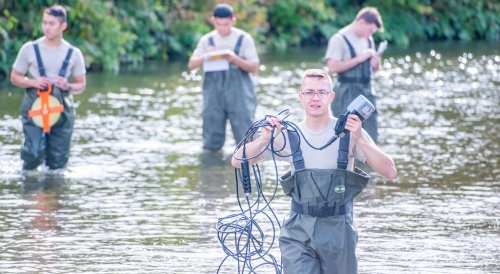

Explore Your Planet
The Earth & Environmental Science department provides an interdisciplinary education applicable to a broad range of interests and career paths related to the geosciences and the environment. Employment opportunities continue to grow throughout the environmental industry as managers, scientists, consultants, recycling managers, toxic waste managers, environmental lawyers, real-estate historians, and “ecopreneurs”. Geoscientists are also in high demand within the environmental sector but also find careers in mining, oil and gas, and forensic geology.
Our mission is twofold:
1. To provide you with a broad background in the physical sciences, with a strong focus on geology and environmental sciences and its pivotal role in understanding our environment.
2. To prepare you to enter graduate school for continuing education, or move into the workforce prepared to contribute as a leader addressing the many local and global issues facing society.
The Norwich Difference
Average of 2300 undergraduates on campus
Students can earn up to $30K in merit aid
Outstanding 16:1 student to faculty ratio
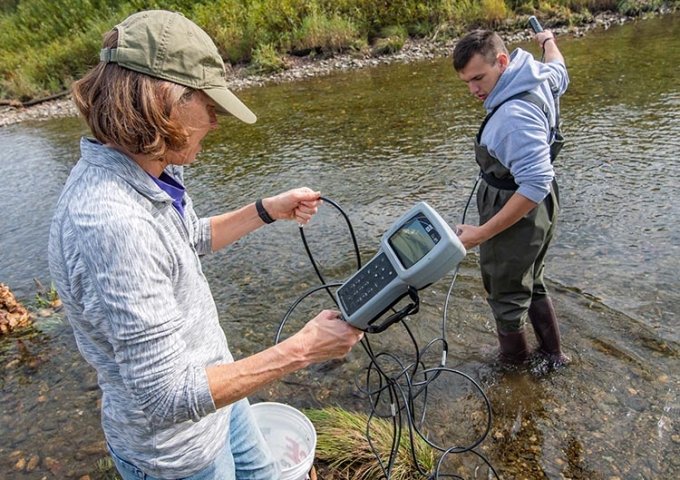
Get Outside the Classroom
Norwich gives you an interdisciplinary education applicable to a broad range of interests and career paths related to the environment. From studying environmental law and protection (criminal justice minor) to endangered species conservation (biology minor), students can match a wide range of careers with their personal interests.
Many courses include studies of active environmental problems, allowing students to tackle challenges with a hands-on approach. We're surrounded by a wide range of biological and geological diversity within walking distance.
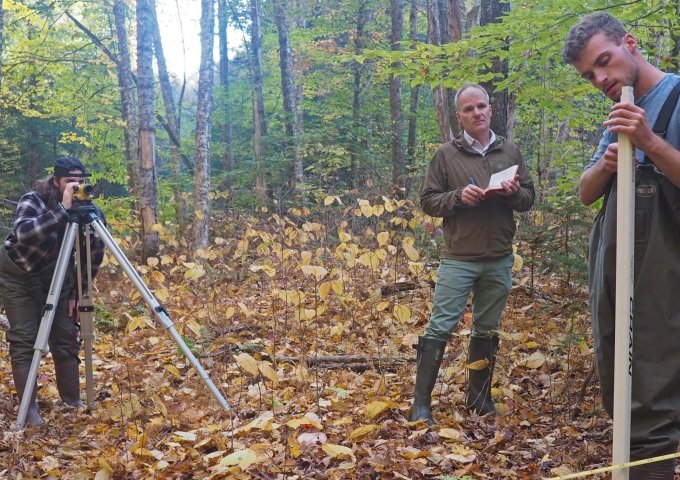
Environmental Science
Dive into Norwich's interdisciplinary education and experiential learning through lab work, field studies, and outdoor education. Courses let you participate and contribute to real-world research projects. You'll begin your curriculum with a firm base in science and math.
You'll have access to several high-precision instruments for environmental monitoring and analysis. Take your advanced training to future careers in environmental consulting, natural resource management, and environmental law and protection.
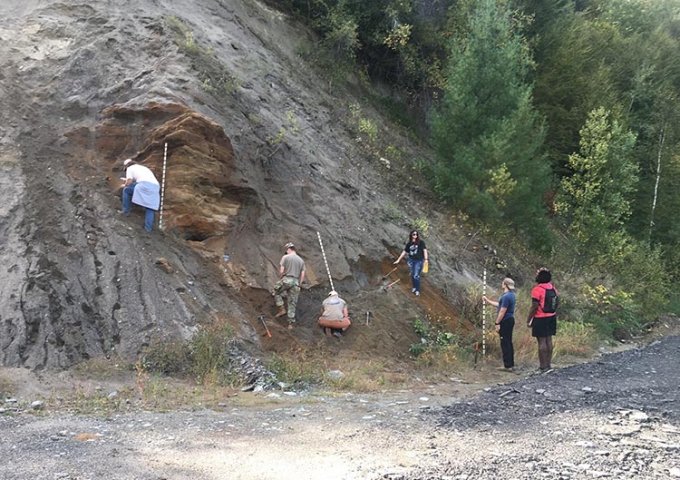
Geology & Earth Science
Our strong emphasis on outdoor field studies combined with hands-on laboratory skills, sets you up for success when solving real-world problems in the industry. Geology and Earth Science is the investigation of modern and ancient Earth's physical and chemical processes and their submicroscopic- to planetary-scale products and events.
Earth scientists study the planet's mountain ranges, continents, oceans, and landforms, as well as its internal structure and motion. You'll address the basic societal needs with the exploration and management of water, and mineral resources, sustainable development of energy, and natural hazard predictions.
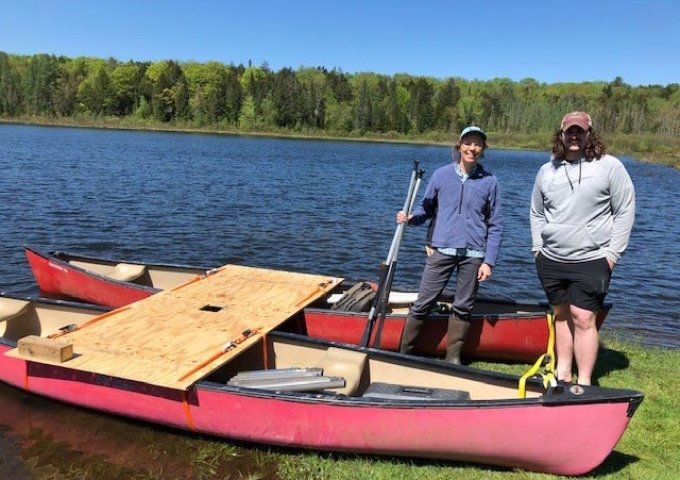
Customize Your Degree
Norwich offers you a small and vibrant learning community with professors who are both respected teachers and active researchers in New England, arctic Canada, Europe, the South Pacific, and the southwestern U.S.
You'll have the opportunity to travel to the desert southwest and across the northeast on program-sponsored trips. Conduct original research in collaboration with a faculty member to prepare you for scientific investigation in the professional world.
With the growing need for alternative energy sources and limited natural resources, the job market in Geology and Earth Science is strong. Norwich sets you up for success in the field through travel, exploration, and adventure.
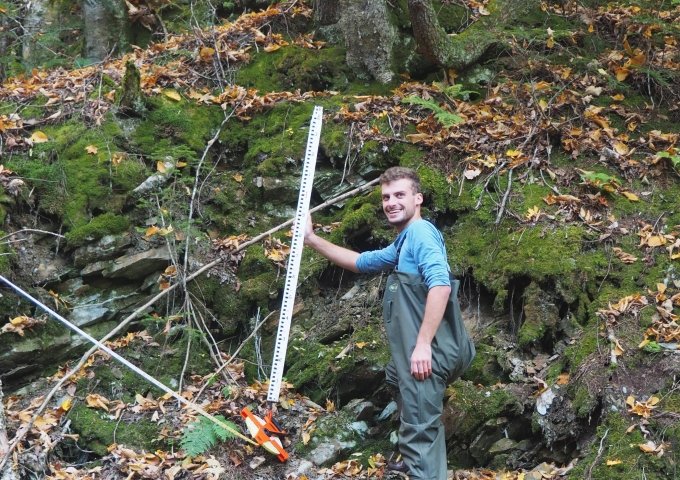
Outdoor Playground
It's not uncommon to find yourself traveling off-campus to study nearby rock formations and other natural areas outdoors. Vermont has so much to offer you as an Earth & Environmental Science (EES) student. You'll never run out of places to explore!
Advanced Facilities & Equipment
The department is equipped with mobile field equipment used to collect water and soil data. Our YSI multi-probe and HACH chemical analysis field kit allows you to get real-time measurements on water quality and chemistry.
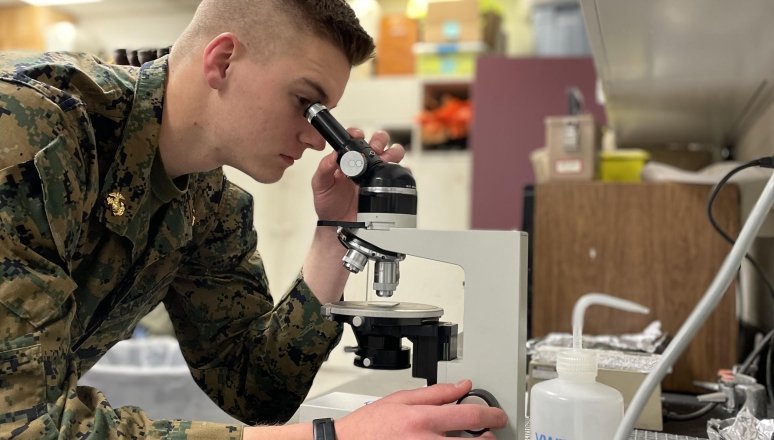
ICAP Spectrometer Lab
Conduct quantitative chemical analyses of rocks, soils, and water from streams, lakes, and aquifers. Our ICAP gives you high-precision analytical capabilities that are unique for a small undergraduate program. You'll be prepared for the complex field work that a future career entails.
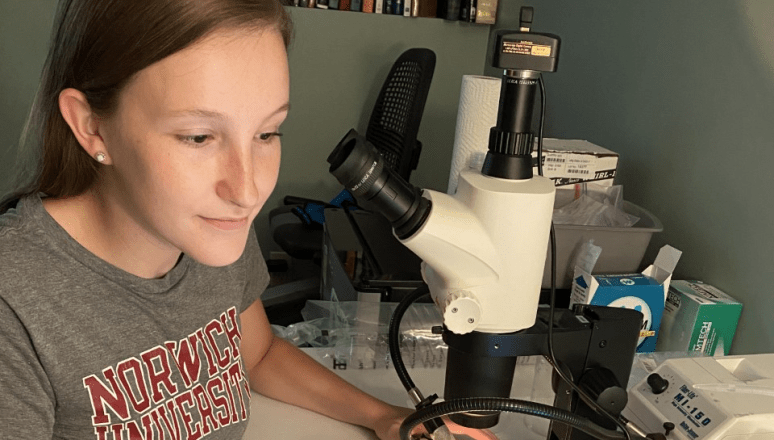
X-Ray Diffractometry Facilities
Analyze mineral deposits that preserve important records of past climate and environmental conditions.
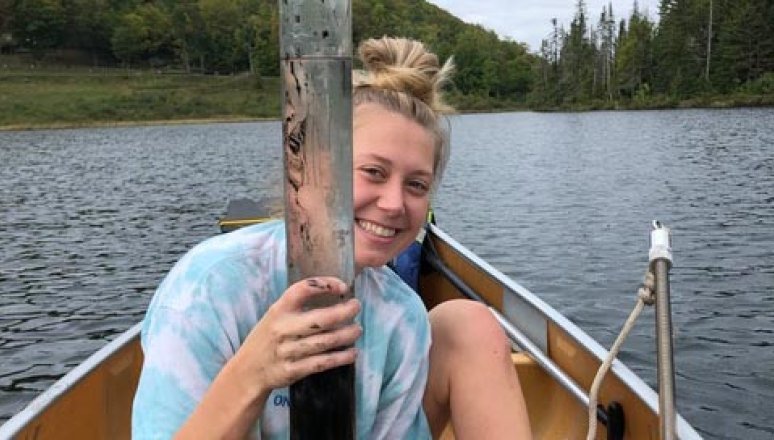
Geophysical Tools
A Gravity meter, seismograph, magnetometer, electro magnetometer, and ground penetrating radar are used to investigate the impact of human activities on subsurface conditions. Scanning electron microscopy facilities reveal the finest details to investigate inorganic components of soils.
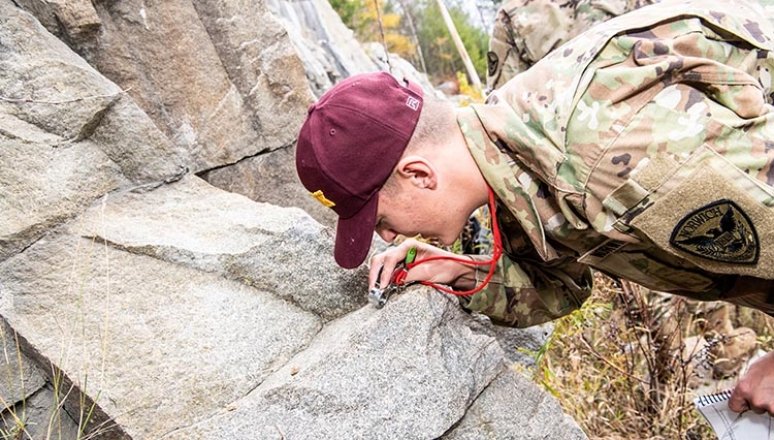
Analysis of Sediment and Soil
Equipment for the collection and analysis of sediment and soil is housed in the program with further analytical capabilities housed in associated programs on campus.
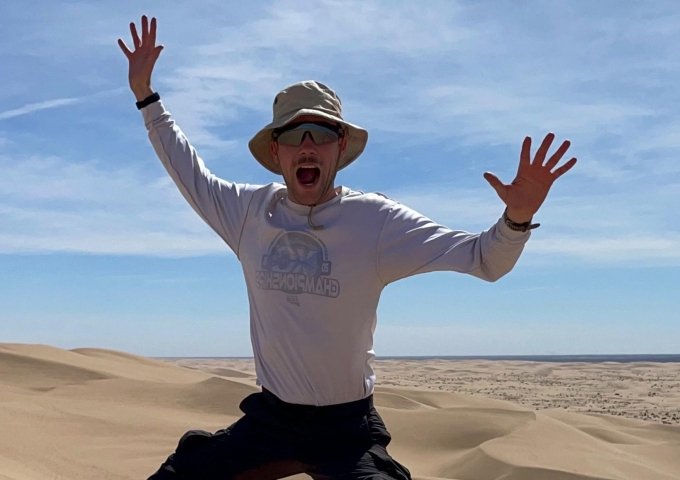
From Coast to Coast
"It was eye-opening to go out west and experience the beauty and vastness of the landscapes that are so different from where we go to school, and to see the things we learn about in such a different context than central VT. I would go again in a heartbeat." — Ethan Moores, Environmental Science major.
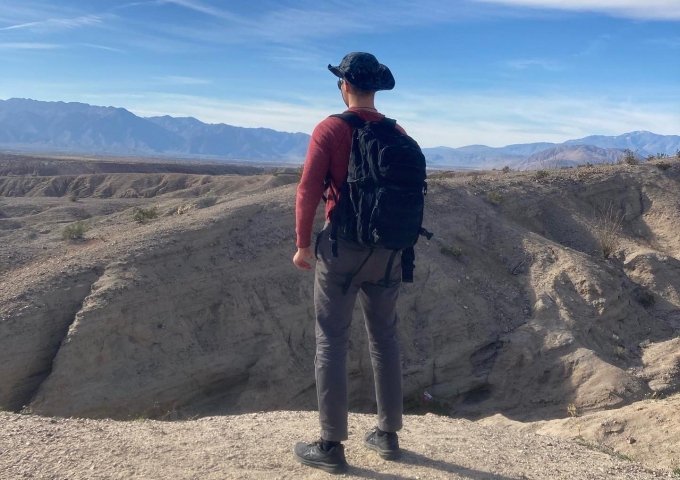
Best Travel Experiences
"This particular trip took place in San Diego, California, where we explored many geological areas from the coastlines, the mountains, to the desert and canyons.
This was probably one of the best travel experiences, as I had the opportunity to enjoy nature and to spend time with my EES professors and fellow EES majors, where I formed friendships that will last a lifetime." — Braeden Krzenski, Environmental Science major.
Meet Our Faculty
Contact:
Laurie Grigg
- Chair, Department of Earth and Environmental Sciences
- Associate Professor






